27 May2021
By Michael Rose
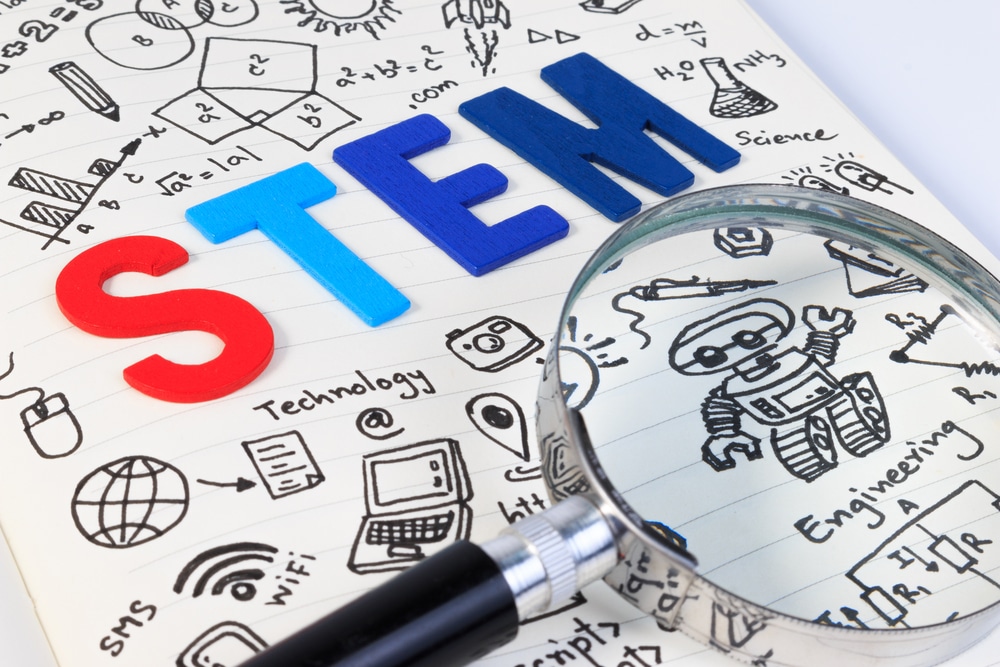
Recently, the U.S. House of Representatives passed legislation, endorsed by AACTE—the Rural STEM Education Research Act (HR 210.) The legislation supports research and development to increase access to STEM education opportunities in rural schools and to provide teachers with the resources they need to teach more effectively.
The bill also directs the National Institute of Standards and Technology (NIST) to develop a prize competition to advance research and development of creative technologies for expanded broadband access. This bill further provides for assessments of Federal investments in rural STEM education to be conducted by the National Academies and the Government Accountability Office. The bipartisan legislation was introduced by House Science Committee Chairwoman Eddie Bernice Johnson (D-TX) and Ranking Member Frank Lucas (R-OK) and passed the House with bipartisan support. It is unclear if the Senate will approve the bill.
25 Feb2021
By Katrina Norfleet
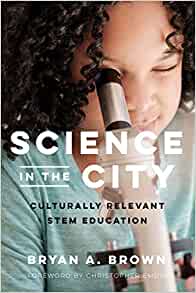 AACTE is pleased to announce Bryan A. Brown’s Science in the City: Culturally Relevant STEM Education, as the recipient of the 2021 AACTE Outstanding Book Award. Brown is being presented with the award at today’s virtual AACTE 73rd Annual Meeting Awards Forum.
AACTE is pleased to announce Bryan A. Brown’s Science in the City: Culturally Relevant STEM Education, as the recipient of the 2021 AACTE Outstanding Book Award. Brown is being presented with the award at today’s virtual AACTE 73rd Annual Meeting Awards Forum.
Science in the City: Culturally Relevant STEM Education, published by Harvard Education Press in 2019, examines how language and culture impact effective science teaching. In the book, Brown argues that teachers need to understand how cultural issues intersect with the fundamental principles of learning, and that science education can thrive if it is connected to students’ culture, backgrounds, identities, and language.
22 Feb2021
Invited Speakers Talk About Courageous Action
By Sumi Hagiwara
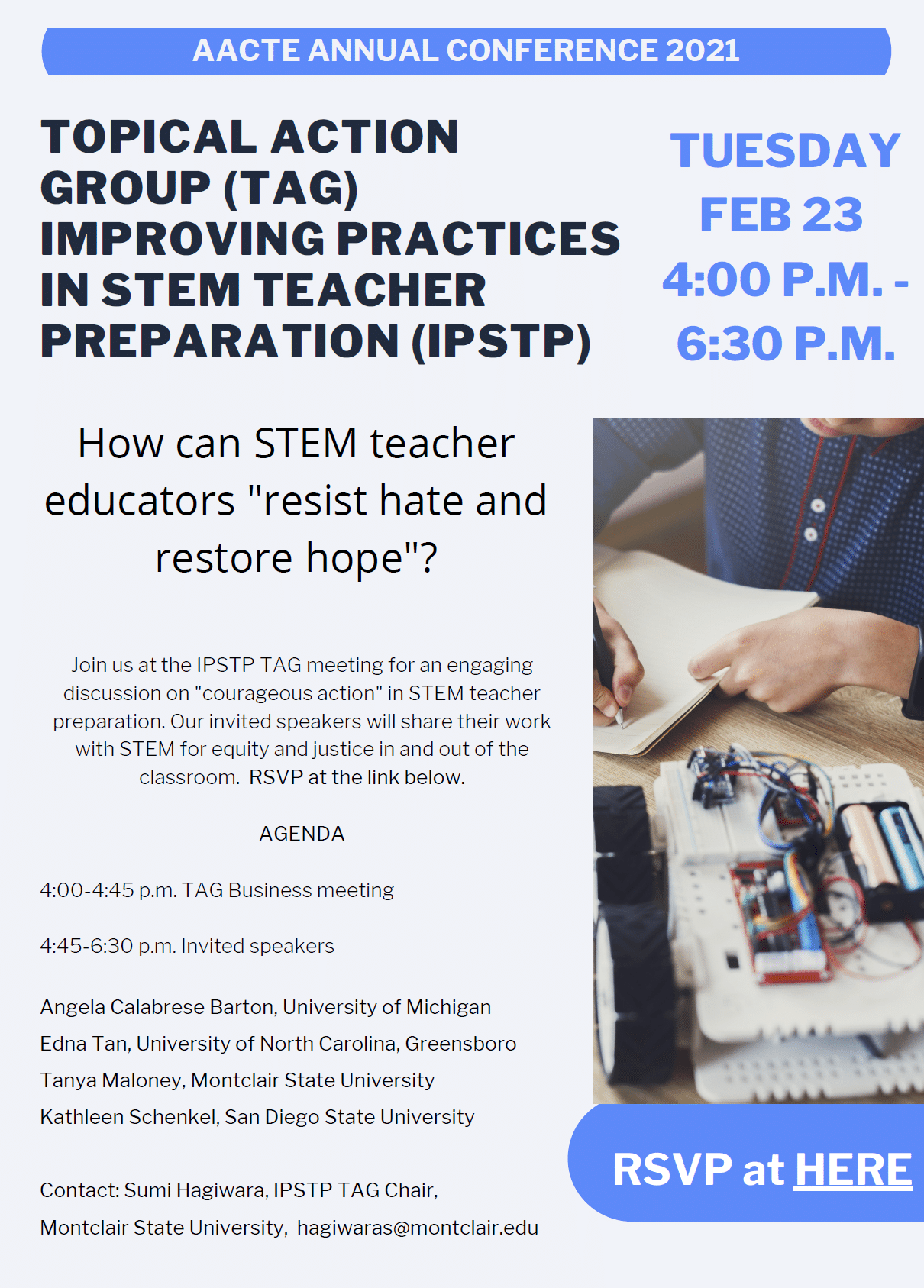 The call to action to engage our collective consciousness by resisting hate and restoring hope through courageous action is now. After the summer of racial reckoning, institutions have re-examined mission and vision statements for what many consider a watershed moment with “talk of transformation, roadmaps, and “action steps” toward sweeping curricular reforms (Bartlet, T, 2021). The Improving Practices in STEM Teacher Preparation (IPSTP) Topical Action Group (TAG) likewise responds to the call by reimagining TAG activities and engaging members to reflect, reimagine, and take action through STEM teacher education.
The call to action to engage our collective consciousness by resisting hate and restoring hope through courageous action is now. After the summer of racial reckoning, institutions have re-examined mission and vision statements for what many consider a watershed moment with “talk of transformation, roadmaps, and “action steps” toward sweeping curricular reforms (Bartlet, T, 2021). The Improving Practices in STEM Teacher Preparation (IPSTP) Topical Action Group (TAG) likewise responds to the call by reimagining TAG activities and engaging members to reflect, reimagine, and take action through STEM teacher education.
To start the work for envisioning courageous action, the IPSTP TAG has invited scholars to share their work in socially just and equity-sustaining STEM practices. The invited speakers include Angela Calabrese Barton of the University of Michigan, Edna Tan of the University of North Carolina at Greensboro, Tanya Maloney of Montclair State University, and Kathleen Schenkel of San Diego State University.
25 Jan2021
By Chad Baldwin
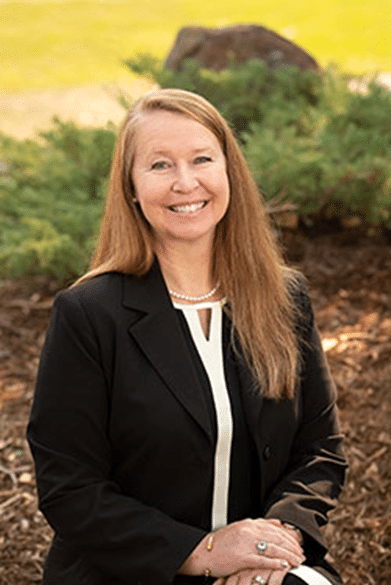 The associate dean of undergraduate programs in the University of Wyoming College of Education is the recipient of the Outstanding Science Teacher Educator of the Year Level One Award.
The associate dean of undergraduate programs in the University of Wyoming College of Education is the recipient of the Outstanding Science Teacher Educator of the Year Level One Award.
Andrea Burrows, a professor in the UW School of Teacher Education, received the award during the Association for Science Teacher Education (ASTE) 2021 International Conference, which took place virtually Jan. 14-15. As part of the award, she received a plaque and a cash award from Carolina Biological Supply Co., and she will be recognized in the awards issue of the ASTE newsletter.
The award recognizes the individual achievements and contributions of ASTE members in the first 10 years of their careers. Burrows has inspired pre-service science educators at UW for over nine years. She has won past awards from ASTE, including the 2019 John C. Park National Technology Leadership Initiative Fellowship and the Innovation in Teaching Science Teachers Award in 2020.
“I am truly honored that ASTE would choose me as the 2021 Outstanding Science Teacher Educator,” Burrows says. “My goals as a science teacher educator include continuing research to discover the workings of interdisciplinary spaces involving STEM and providing high-quality professional development for K-20 teachers to use what we are learning. This award provides recognition of the value of this type of interdisciplinary work.”
Burrows was selected for the award based on numerous achievements throughout her career, including the $1.2 million National Science Foundation (NSF) Noyce grant she leads to recruit students with STEM (science, technology, engineering and mathematics) backgrounds into the teaching field. This novel program has helped recruit and support 51 secondary science and mathematics teachers since 2013. She also co-leads a $1 million NSF Computer Science for All grant, which has provided teacher professional development and support since 2019.
17 Dec2020
By Margie Low
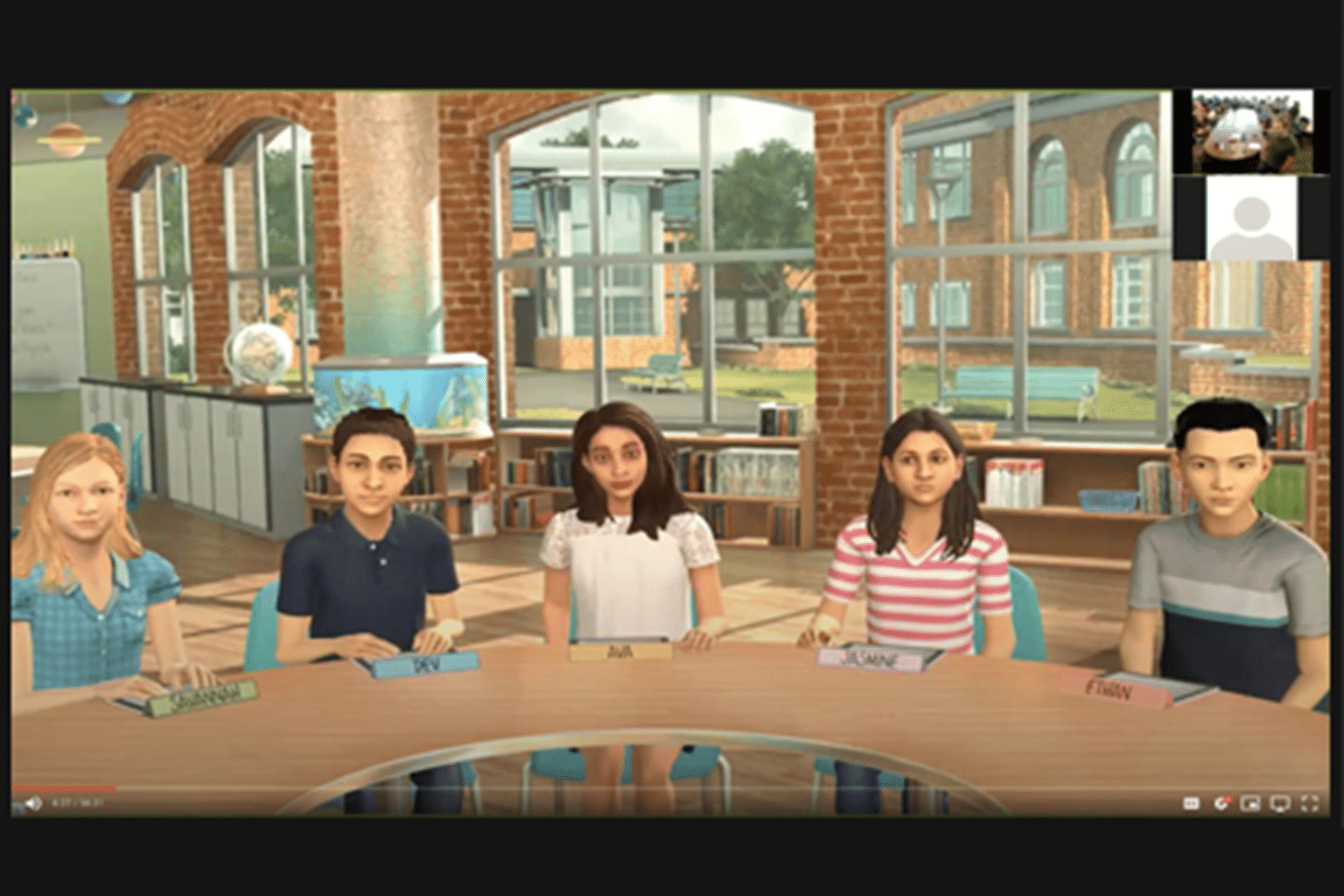
Photo: A screenshot of Cal State LA student-teachers interacting virtually with avatar pupils in a simulated classroom. (Credit: Cal State LA)
California State University, Los Angeles (Cal State LA ) has been awarded a three-year, $586,000 grant from the National Science Foundation (NSF) to train future teachers in math and science instruction using a simulation lab.
The grant will establish Simulations for Minority Interactive Learning Environments (SMILE): A Design and Development Project at Cal State LA. The project will feature a simulation lab that will help prepare elementary teachers who will work in high-need urban schools to offer a successful learning experience in math and science.
Researchers will also study the integration of the use of mixed-reality virtual simulations in teacher preparation across several courses in the university’s Multiple Subject Teaching Credential Program. Faculty in Cal State LA’s Charter College of Education (CCOE) will create scenarios and develop scripts specifically intended to teach STEM concepts.
16 Oct2020
By Deirdre Armitage
This article is part of a series on clinically rich teacher preparation in New York State, coordinated by Prepared To Teach at Bank Street College. The text is adapted from their latest report, Making Teacher Preparation Policy Work: Lessons From and For New York, and shared by the featured institution.
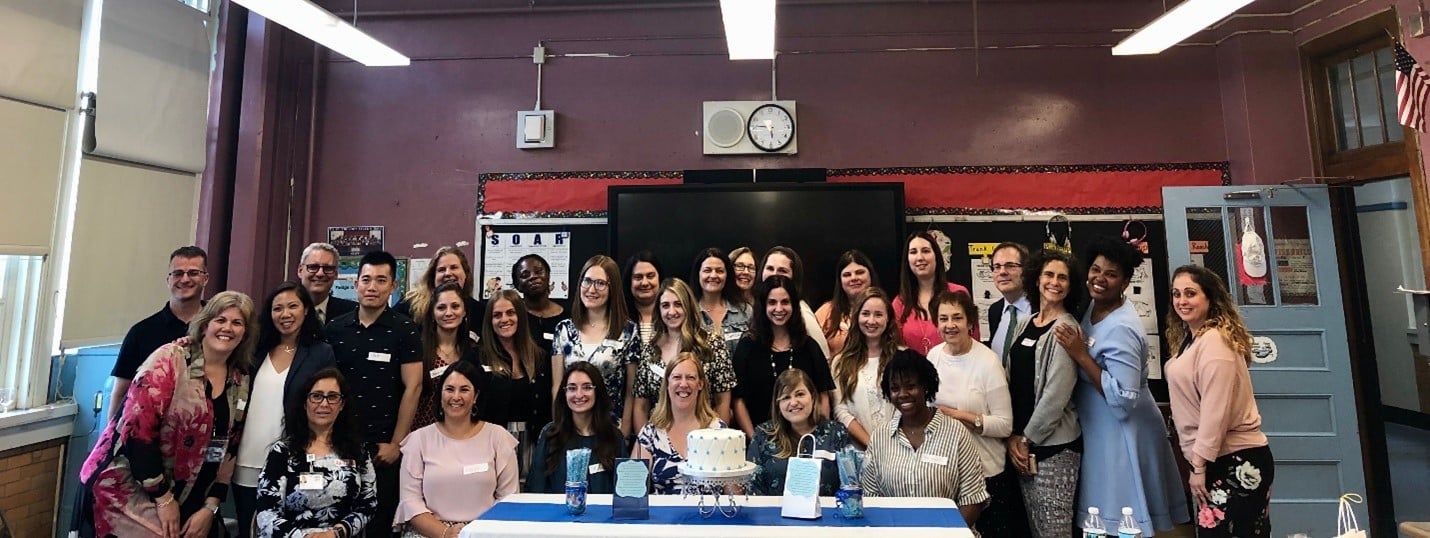
The College of Staten Island (CSI) enrolls many diverse first-generation college students. A number of these students support their families and themselves, working multiple jobs and limiting expenses while studying—making it impossible to pursue a traditional student teaching pathway that includes a semester of unpaid, full-time student teaching. Seeing that many students were effectively being excluded from teacher preparation, the College and its partner schools set out to create a teacher residency that paid students for their time spent in classrooms, providing an accessible path to a teaching career.
07 Oct2020
By Karen Hammerness, Julie Contino and Maritza McDonald
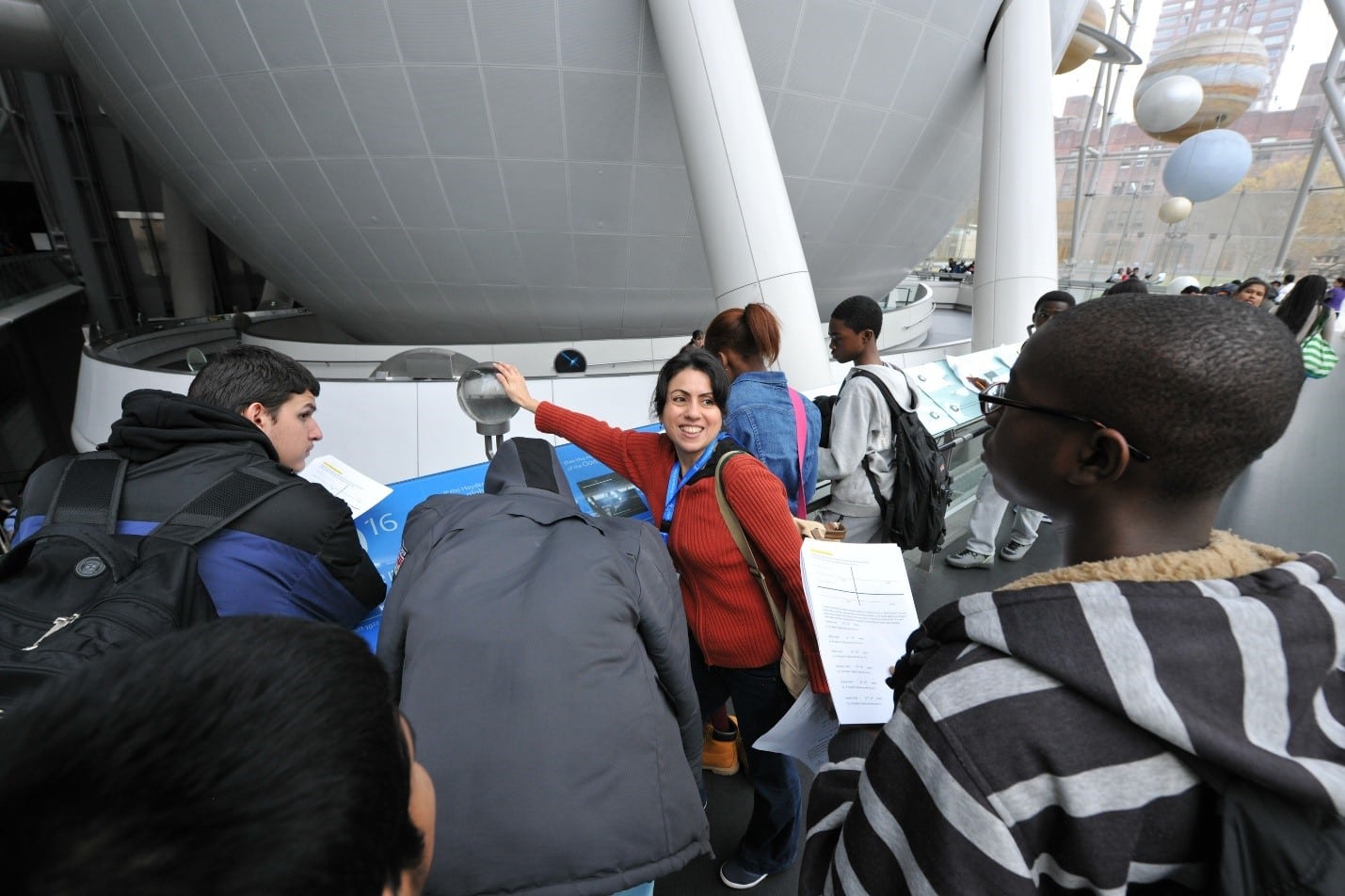
Photo Credit: Denis Finnin, AMNH
This article is part of a series on clinically rich teacher preparation in New York State, coordinated by Prepared To Teach at Bank Street College. The text is adapted from their latest report, Making Teacher Preparation Policy Work: Lessons From and For New York, and shared by the featured institution.
The American Museum of Natural History (AMNH) may be most well-known for its long history of scientific research, and for its expansive galleries featuring casts of dinosaurs, or dioramas from around the world, and the 94-foot long Blue Whale suspended in the Hall of Ocean Life. However, for just as long as the museum has been engaged in educating the public about scientific phenomena through visits, the museum has been supporting teachers and teaching. Since just after the museum opened in 1880, the museum offered lecture courses for teachers, broadening offerings by the 1920s. In the late 1930s, the museum offered a preparation program for teachers interested in using out-of-school learning experiences in their classrooms. Today, the museum offers a wide range of professional development opportunities for teachers in science, as well as works in partnership with cultural institutions around the city to support science teacher development.
10 Sep2020
By Jacqueline Rodriguez
The U.S. Department of Education (ED) is hosting a monthly STEM webinar series. The September 15 event, 1:30-3:00 pm ET, will focus on STEM Teacher Preparation with an eye toward increasing diversity in the teacher corps and in student interest and agency in STEM. Speakers include ED and NSF grantees noted below. Register to receive a link to view the live broadcast and submit a question to the panel.
STEM Teacher Prep – September 15, 1:30-3:00 PM ET
17 Apr2020
By Deborah Koolbeck
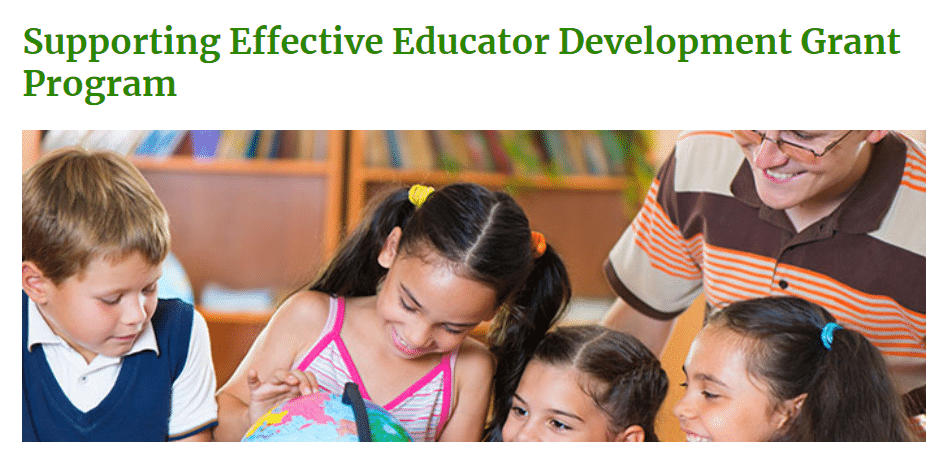
On April 13, 2020, the U.S. Department of Education via the Federal Register announced that applications are available for the FY20 grant cycle of the Supporting Effective Educator Development (SEED) grant program. With the reauthorization of the Elementary and Secondary Education Act, this program was expanded to include institutions of higher education as participants in the program. The Department estimates that $22 million will be available for these 3-year grants.
The SEED grant program’s main goal is to increase the number of highly effective educators by supporting the implementation of evidence-based practices that prepare, develop, or enhance the skills of educators. This program is designed to encourage the use of rigorous evidence in selecting and implementing opportunities to support educator’s development across the continuum of their careers, including preparation, recruitment, evaluation, professional learning, and leadership development.
10 Jan2020
By Ward Cummings
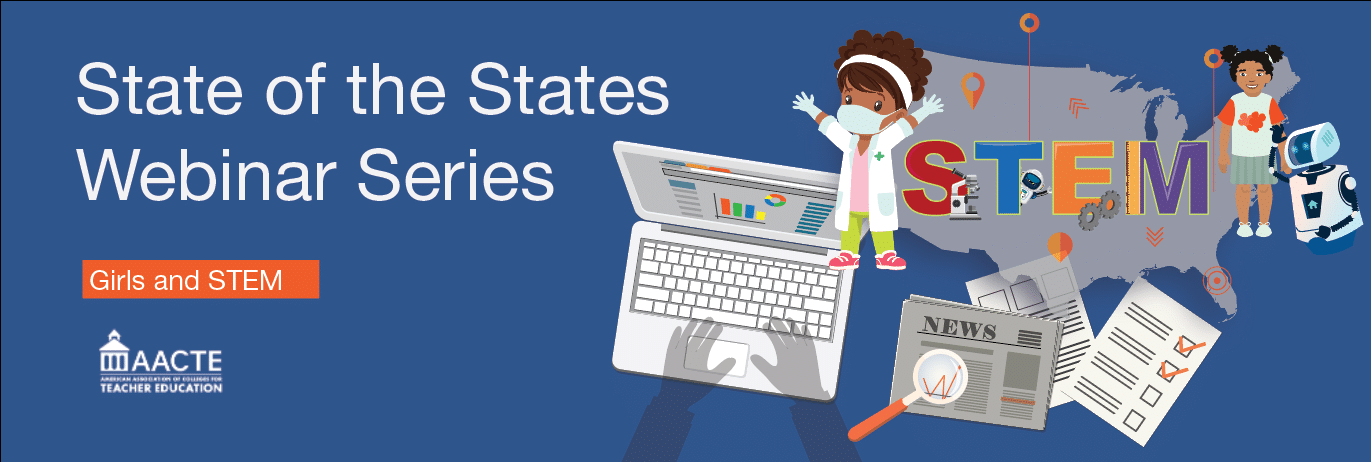
The subject of this month’s State of the States webinar is Girls and STEM. In 2009, four university researchers explored their suspicion that girls’ lagging behind boys in math achievement was substantially influenced by the math anxieties of their female elementary school teachers. The result of their research showed their suspicions to be correct and that some of the achievement gap was indeed a result of female teachers’ own apprehensions about math and their personal biases about the abilities of female students. The researchers found that female students can pick up on and even absorb negative thoughts from their teachers as early as kindergarten. Learn more.
Since that study was conducted, the achievement gap in math between boys and girls has narrowed, but still persists. The webinar will focus on what states are doing legislatively, with programs and with policy to eradicate the STEM achievement gap.
Register now for this members-only webinar:
State of the States: Girls and Stem
Wednesday, January 22
10:00 a.m. ET
03 Jan2020
By Deborah Koolbeck
 In a Dear Colleague Letter, Karen Marrongelle of the National Science Foundation (NSF) invites proposals to the Improving Undergraduate STEM Education: Education and Human Resources Program from institutions of higher education that are new to the program. The letter specifically includes the opportunity in the Engaged Student Learning track of “… improving K-12 STEM education through undergraduate preservice STEM teacher preparation …”
In a Dear Colleague Letter, Karen Marrongelle of the National Science Foundation (NSF) invites proposals to the Improving Undergraduate STEM Education: Education and Human Resources Program from institutions of higher education that are new to the program. The letter specifically includes the opportunity in the Engaged Student Learning track of “… improving K-12 STEM education through undergraduate preservice STEM teacher preparation …”
Marrongelle heads the NSF Directorate for Education and Human Resources , which supports “the development of a diverse and well-prepared workforce of scientists, technicians, engineers, mathematicians, and educators and a well-informed citizenry that have access to the ideas and tools of science and engineering.”
02 Jan2020
By Carly Leatherwood and Samantha Pelham
This article originally appeared on the Ohio University Ohio News website and is reprinted with permission.
Ohio University received the Teacher Quality Partnership (TQP) grant that will allow OHIO to partner with the Educational Service Center of Central Ohio (ESCCO) to improve the quality of OHIO’s special education teacher preparation program, which will improve the academic achievement of K-12 students.
The grant will span over five years, totaling more than $4.1 million to help accomplish this goal. It also provides opportunities for adult learners, supporting OHIO’s Strategic Framework and the initiative to catalyze strategic enrollment for lifelong learning.
“This partnership with ESCCO allows Ohio University to serve Ohio in preparing the next generation of teachers to work with all learners,” said Renée A. Middleton, dean of the Patton College of Education. “Our vision statement is ‘The Patton College—Where Learning Has No Limits!’ This partnership for teacher quality will allow us to fulfill that vision and commitment.”
07 Nov2019
By California State University Monterey Bay
 California State University Monterey Bay (CSUMB) has been selected to receive funding under the U.S. Department of Education’s Teacher Quality Partnership (TQP) program in the amount of $4,849,320; $2.2M of which will go directly to student scholarships.
California State University Monterey Bay (CSUMB) has been selected to receive funding under the U.S. Department of Education’s Teacher Quality Partnership (TQP) program in the amount of $4,849,320; $2.2M of which will go directly to student scholarships.
The award, expected to span over a total of five years, will also help fund a project entitled Preparing Observational Practitioners through Partnerships Yearlong (POPPY) and support CSUMB partnerships with eight school districts across Monterey County, further advancing the “grow your own” model of teacher preparation.
25 Oct2019
By Beth Day
The U.S. Department of Education has awarded the Southern Regional Education Board a $5.3 million, 5-year Teacher Quality Partnership grant to create a residency-based teacher preparation program with Georgia College & State University.
The Georgia Residency for Educating Amazing Teachers will recruit undergraduate STEM majors who aspire to become middle grades math and science teachers. They will complete an online Master of Arts in Teaching during a year-long residency—practice teaching supervised by a mentor-teacher— in a high-needs middle grades classroom.
Rural school districts served by the Oconee Regional Education Service Agency in central Georgia will be the primary partners for hosting the residents in classrooms. SREB and Georgia College will support mentor-teachers and residents with coaching and specialized training on topics like project-based learning.
Over the course of the grant, 60 students will become fully certified to teach middle grades math or science in Georgia; some will also complete a computer science endorsement.
The newly certified teachers will then teach in a local school for two years with support from mentor-teachers and SREB instructional coaches. Participants agree to teach in their assigned schools for one year beyond this two-year induction period.
18 Oct2019
By Toni Molle
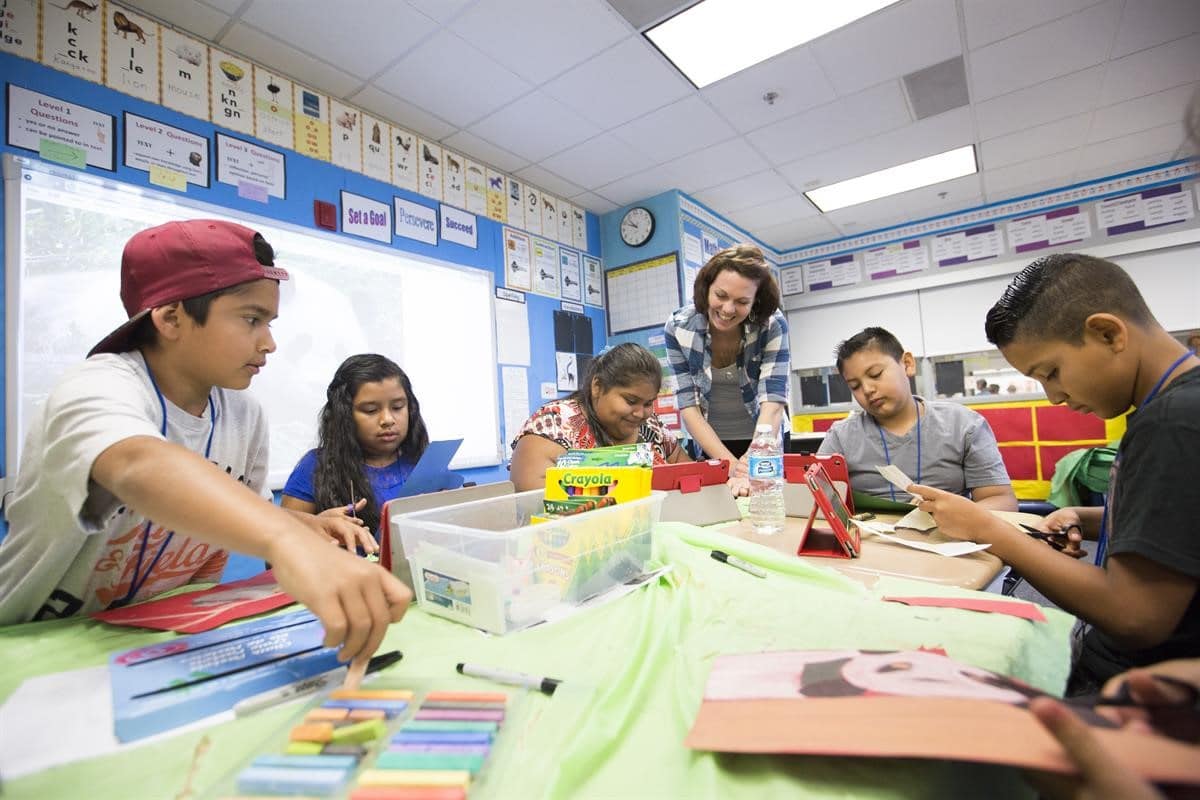
Photo: Courtesy of The California State University
This article and photo originally appeared on The California State University website and are reprinted with permission.
Three California State University (CSU) campuses were awarded nearly $3 million from the U.S. Department of Education’s Teacher Quality Partnership (TQP) program to recruit and prepare science, technology, engineering, mathematics (STEM) and computer science teachers to serve students in low-income and high-need schools throughout the state. California State University campuses in Chico ($1,027,195), Dominguez Hills ($1,028,844) and Monterey Bay ($811,719) have received a total of $2,867,758 in funding for the program.
“Collaboration is a key component among educators,” said Marquita Grenot-Scheyer, assistant vice chancellor for Educator Preparation at the CSU Chancellor’s Office. “By expanding the ongoing collaborative partnerships between the CSU and high-need school districts and through development of engaging STEM and computer science programs, more students will succeed in the classroom.”








 AACTE is pleased to announce Bryan A. Brown’s Science in the City: Culturally Relevant STEM Education, as the recipient of the 2021 AACTE Outstanding Book Award. Brown is being presented with the award at today’s virtual AACTE 73rd Annual Meeting Awards Forum.
AACTE is pleased to announce Bryan A. Brown’s Science in the City: Culturally Relevant STEM Education, as the recipient of the 2021 AACTE Outstanding Book Award. Brown is being presented with the award at today’s virtual AACTE 73rd Annual Meeting Awards Forum. The call to action to engage our collective consciousness by resisting hate and restoring hope through courageous action is now. After the summer of racial reckoning, institutions have re-examined mission and vision statements for what many consider a watershed moment with “talk of transformation, roadmaps, and “action steps” toward sweeping curricular reforms (Bartlet, T, 2021). The Improving Practices in STEM Teacher Preparation (IPSTP) Topical Action Group (TAG) likewise responds to the call by reimagining TAG activities and engaging members to reflect, reimagine, and take action through STEM teacher education.
The call to action to engage our collective consciousness by resisting hate and restoring hope through courageous action is now. After the summer of racial reckoning, institutions have re-examined mission and vision statements for what many consider a watershed moment with “talk of transformation, roadmaps, and “action steps” toward sweeping curricular reforms (Bartlet, T, 2021). The Improving Practices in STEM Teacher Preparation (IPSTP) Topical Action Group (TAG) likewise responds to the call by reimagining TAG activities and engaging members to reflect, reimagine, and take action through STEM teacher education.  The associate dean of undergraduate programs in the University of Wyoming College of Education is the recipient of the Outstanding Science Teacher Educator of the Year Level One Award.
The associate dean of undergraduate programs in the University of Wyoming College of Education is the recipient of the Outstanding Science Teacher Educator of the Year Level One Award.




 In a
In a  California State University Monterey Bay (CSUMB) has been selected to receive funding under the U.S. Department of Education’s Teacher Quality Partnership (TQP) program in the amount of $4,849,320; $2.2M of which will go directly to student scholarships.
California State University Monterey Bay (CSUMB) has been selected to receive funding under the U.S. Department of Education’s Teacher Quality Partnership (TQP) program in the amount of $4,849,320; $2.2M of which will go directly to student scholarships.